Ashley Bruce of Cell & Systems Biology, Michelle Craig of Computer Science, Denise Cruz of English, Tania Li of Anthropology and Mike Reid of Astronomy & Astrophysics & the Dunlap Institute are this year’s recipients of the Faculty of Arts & Science Outstanding Teaching Awards. Established in 1993, the awards highlight excellence in teaching. Recipients are selected based on nominations by peers and students. David Cameron, dean of the Faculty of Arts & Science, presented the awards on April 20th at the Faculty Club.
Ashley Bruce, Cell & Systems Biology
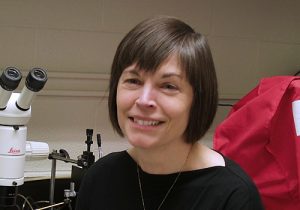
Ashley Bruce is an enthusiastic and encouraging teacher with an incredible ability to bring out the very best qualities in her students. She is deeply committed to fostering student-centred learning and collaboration and her efforts have bolstered her students’ confidence in the material. Her passion also extends beyond the classroom. She is deeply committed to helping students build connections between what they are learning in their programs and their future aspirations. As just one example, she started the co-curricular project “Profiling Opportunity: Pathways to the Future” — a highly successful initiative that helps students make the connection between their education and their lives. What can I do with my life science degree? How can my personal and professional goals fit together? These are important questions on the minds of many students — and thanks to Bruce, students are getting very helpful guidance.
Michelle Craig, Computer Science
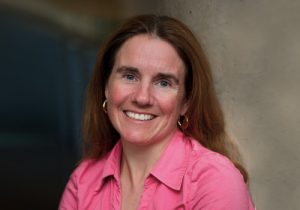
Michelle Craig is known for her tremendous openness, her patience and her commitment to creating a welcoming and effective learning environment for her students. In the words of one student: “Through her teaching and mentorship, she has encouraged and enabled me to reach my full potential both academically and beyond the classroom. She is a huge part of my sense of belonging to, and loyalty towards, our university community, and I am convinced that she has had a similar impact on many of my fellow students.” She is also highly-regarded for incorporating evidence-based pedagogical approaches into her classroom and her work in course design. Long before the “flipped classroom” was in wide use, Craig was incorporating active learning into her teaching. She was, for example, the first in computer science to move students out of the “chalk and talk” tutorials and into computing labs, where they could work on solving real problems in real time.
Denise Cruz, English
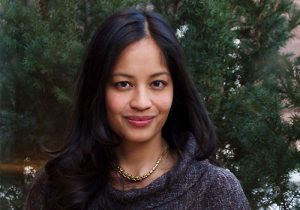
Denise Cruz has taught the Department of English’s largest course — Literature for Our Time (ENG 140) — since 2014. According to Nick Mount, who taught the course for the previous decade, Cruz completely re-imagined the syllabus and brought her own unique combination of energy, creativity and intelligence to it. This has involved singing with her students as a way to demonstrate anonymity within a crowd and playing a 400-student version of the game “telephone” to examine the multiple narrators of Toni Morrison’s Beloved. But it’s not all fun and games in the name of learning. The enormous enthusiasm she stirs in her students is based on a rock-solid foundation of up-to-the-minute knowledge of her subject. Her course plans are well-developed and beautifully structured and her assignments are inspired. Praised as a “teacher’s teacher” by colleagues, Cruz has a deep and long-standing interest in the professional development of her colleagues and TAs.
Tania Li, Anthropology
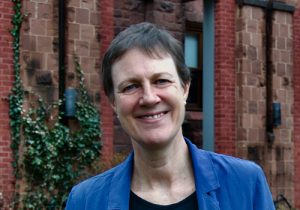
In the words of one student, Tania Li is: “Challenging and inspiring, engaging and enlightening, deeply caring and passionate — the best professor I’ve had in my four years at U of T.” Li is a proponent of “living dangerously with ideas” — taking a position that is counter-intuitive, or perhaps controversial, and arguing a case backed by evidence. She encourages her students to rise to the challenge. She is also passionate about creating international research opportunities for undergraduates both through the Research Opportunities Program — where students participated in her SSHRC project in Indonesia — and with independent research opportunities in Kerala, India. In the graduate student arena, Li has been at the forefront of anthropology’s professional development activities. She’s organized workshops on proposal-writing, preparing CVs, academic publishing, and preparing for both the academic and non-academic job markets. She has also been on the vanguard of anthropology’s Writing Instructions for TAs (WIT).
Mike Reid, Astronomy & Astrophysics & the Dunlap Institute
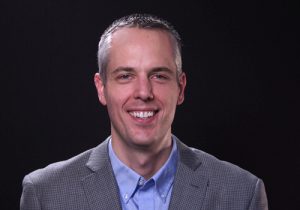
Mike Reid is the kind of teacher who rarely teaches the same course the same way twice. He’s always seeking new methods and technologies to improve his students’ learning. But as one of his nominators attests, he’s more than an “early adopter” or “tech enthusiast” — he has a keen ability to see the pedagogical nuances involved in trying new innovations coupled with the willingness to challenge normative conventions and practices. A wonderful example is his transformation of the department’s two introductory astronomy courses, both taught in Con Hall with enrolments of about 1500 students each. Reid’s approach is highly interactive — instead of a sage on stage, he’s a facilitator — encouraging students to pose their own questions and come up with answers together. He also gives them a taste of self-directed research with an astrophotography assignment using their cellphones. No surprise then that a recurring comment on his highly positive teaching evaluations is that Reid is inspiring and really cares about his students.

